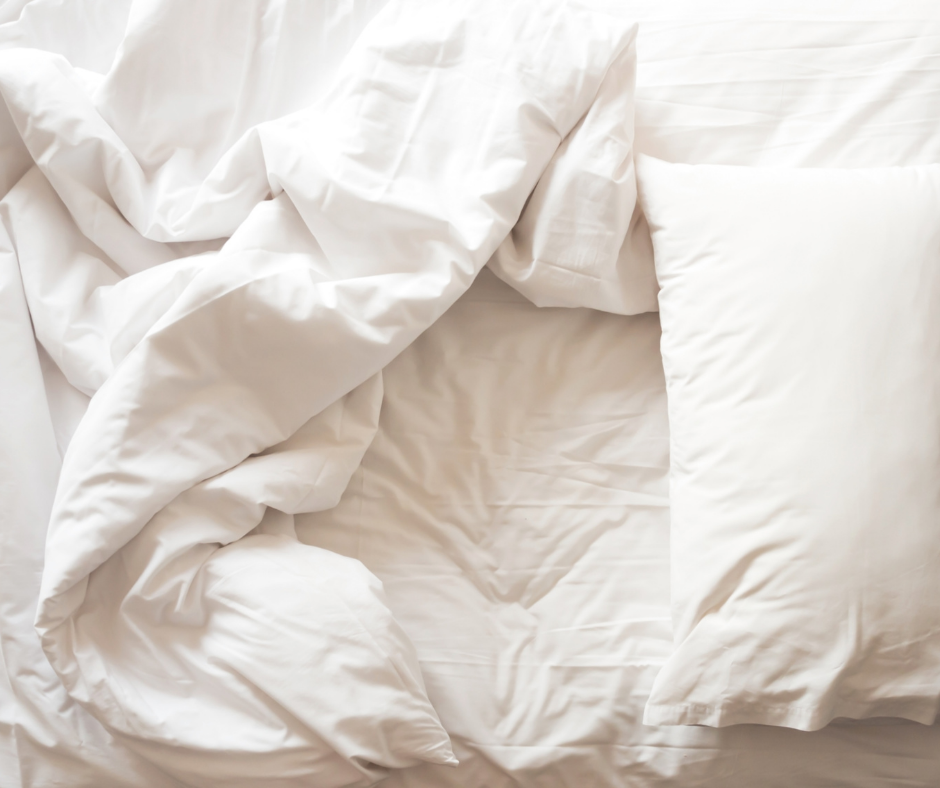If you’re anything like us, you find a certain coziness and comfort under the weight of a heavy blanket. There’s just something so satisfying about feeling tucked in, bundled, and embraced as you drift off to sleep. When the colder months come around, we heap all of the blankets on our beds and bask in the comfort.
This weighted phenomenon may also help explain why so many of us have more difficulty sleeping in the summer. It’s simply too hot to curl up under a blanket, but a thin sheet doesn’t go far enough to make us feel comfortable—even if it keeps us cool.
Thankfully, Hush is here to help. With a variety of weighted blankets adaptable to all seasons, Hush provides that comforting feeling year-round, even when those humid, sweaty, un-blanketed summer nights hit.
What is a weighted blanket?
As you can probably guess, a weighted blanket is like a normal blanket, but heavier—approximately 3 to 5 times heavier than your typical duvet. These blankets range from 15 to 35 pounds, depending on a number of factors such as the weight of the individual, how many people are sharing the blanket, and how the weight is being distributed.
The blankets get their weight from the materials inside. Fillings might include glass beads, polyfill, plastic pellets, or microbeads. Glass beads have the most breathability, and also offer a better heat and weight distribution. This allows for comfort without needing a heavier weight.
Hush recommends going for a blanket that’s roughly 10% of your body weight. So, for an individual, if you weigh between 100 and 170 pounds, a 15-pound weighted blanket would be appropriate, while a 20-pound blanket would work better for someone over 170 pounds. Hush doesn’t recommend having any blankets heavier than 35 pounds, regardless of how many people it covers. With too much weight, you may be at risk of decreased blood circulation, pressure on your joints, and feelings of restricted movement.
It’s a heavy blanket. What’s the big deal?
At a cursory glance, it is, indeed, a heavy blanket. But weighted blankets do actually have some, ahem, weight behind their claims of comfort. In fact, these blankets were first designed for patients suffering from sleep anxiety, ADHD, OCD, and Sensory Processing Disorder. More recent studies involving Deep Touch Pressure (DPT) have found that the added weight relaxes the body, allowing optimal sleep quality.
That’s not all: Weighted blankets also have positive effects on insomnia, with findings showing that sleep time increased due to a lack of movement. Participants settled down more easily, fell asleep more easily, and felt much more rested in the morning.
Additionally, the use of weighted blankets helped reduce anxiety in 63% of patients, resulting in decreased brain activity and lower anxiety. 78% of patients enjoyed the weighted blanket at their preferred calming method. This is because weighted blankets are found to increase serotonin (a sleep-inducing hormone) and melatonin (the main hormone involved in sleep), while decreasing levels of cortisol—your body’s main stress hormone.
Blankets year round, less stress, and a better night’s sleep? Yes, please! If you have difficulty sleeping on a regular basis, you may have an undiagnosed sleep disorder. Book a complimentary sleep consultation today. You’ll be back to sweet dreams sooner than you think.
We wrote this post with reference to an article by Hush. You can read the full article here.






